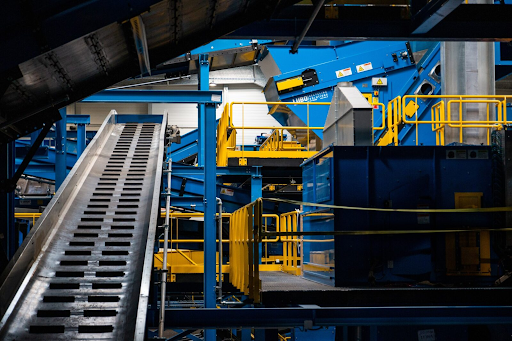With the rising demand for sustainable waste management, businesses are under increasing pressure to adopt efficient recycling sorting solutions. Proper waste sorting not only reduces landfill waste but also helps companies comply with environmental regulations, cut down costs, and enhance their corporate social responsibility.
Sorting waste effectively ensures that recyclable materials are processed correctly, minimising contamination and improving the quality of recycled products. Whether a business operates in manufacturing, retail, or commercial sectors, implementing an effective waste sorting system is essential for long-term sustainability.
Key Challenges in Recycling Waste
Despite the benefits, many businesses face challenges in adopting proper recycling sorting solutions. Some of the most common obstacles include:
Lack of Awareness and Training
Many employees are unaware of proper waste segregation methods, leading to contamination in recycling bins. Without clear guidelines, recyclable materials can end up in general waste, reducing efficiency.
Inconsistent Recycling Standards
Different municipalities and recycling facilities may have varying rules on how waste should be sorted. This inconsistency can create confusion for businesses operating in multiple locations.
Limited Space for Waste Sorting
Businesses with small premises often struggle to allocate space for multiple waste bins, leading to improper disposal. Without designated recycling areas, waste management becomes inefficient.
High Initial Costs for Recycling Equipment
Investing in advanced waste-sorting equipment, such as industrial shredders or automated recycling systems, can be expensive. Many companies hesitate to make this investment without a clear return on investment.
Effective Recycling Sorting Solutions for Businesses
To overcome these challenges, businesses must adopt tailored recycling sorting solutions that suit their specific industry needs. Here are some of the best strategies to improve waste efficiency:
Conduct a Waste Audit
A waste audit helps identify the types and quantities of waste a business generates. By analysing waste streams, companies can determine which materials are recyclable and which require alternative disposal methods.
Key steps in conducting a waste audit include:
- Categorizing waste into recyclables, non-recyclables, and hazardous materials
- Identifying contamination issues in current recycling bins
- Determining areas where waste reduction is possible
- Evaluating the effectiveness of existing recycling programs
Implement a Clear Waste Segregation System
A structured waste segregation system ensures that recyclable materials are correctly separated from general waste. Businesses should:
- Use color-coded bins for different types of waste (e.g., blue for paper, green for organic waste, yellow for plastics)
- Place clear signage near waste bins to educate employees on proper disposal methods.
- Regularly train staff on best recycling practices to reduce contamination
Invest in Industrial Shredders for Efficient Waste Processing
For businesses handling large volumes of recyclable materials, industrial shredders can significantly improve waste sorting efficiency. These machines help:
- Reduction of the volume of waste, making it easier to transport and process
- Break down materials like paper, plastic, and metal into manageable sizes
- Ensure confidential documents are securely destroyed before recycling.
Automate the Recycling Process with Smart Technology
Advanced recycling sorting solutions now include smart waste management systems that automate sorting processes. Businesses can benefit from:
- AI-powered sorting machines that identify and separate different materials
- Sensors that monitor bin levels and optimise waste collection schedules
- Data analytics tools that track waste generation trends and improve efficiency
Partner with Commercial Waste Management Services
Working with commercial waste management companies can help businesses streamline their recycling efforts. These services offer:
- Customised recycling programs tailored to specific business needs
- Access to specialised recycling facilities for complex materials like electronic waste
- Regular collection services to ensure waste is disposed of responsibly
Encourage Employee Participation in Recycling Initiatives
A successful recycling program depends on employee involvement. Companies can:
- Introduce incentive programs for teams that achieve high recycling rates
- Organise workshops and training sessions on sustainable waste management
- Involve employees in decision-making when implementing new waste-sorting solutions.
Consider On-Site Composting for Organic Waste
For businesses in the food and hospitality industry, composting can be an effective way to manage organic waste. On-site composting systems help:
- Reduce landfill waste by converting food scraps into nutrient-rich compost
- Lower disposal costs associated with organic waste management
- Promote sustainability by using compost for landscaping or donating to local farms.
Conclusion
Implementing effective recycling sorting solutions is essential for businesses looking to improve waste efficiency and reduce environmental impact. By conducting waste audits, investing in the right equipment, and educating employees, companies can create a more sustainable waste management system.
With the right approach, businesses not only contribute to environmental conservation but also enhance their brand reputation and achieve long-term cost savings. Adopting smart recycling solutions today will pave the way for a more sustainable future.









